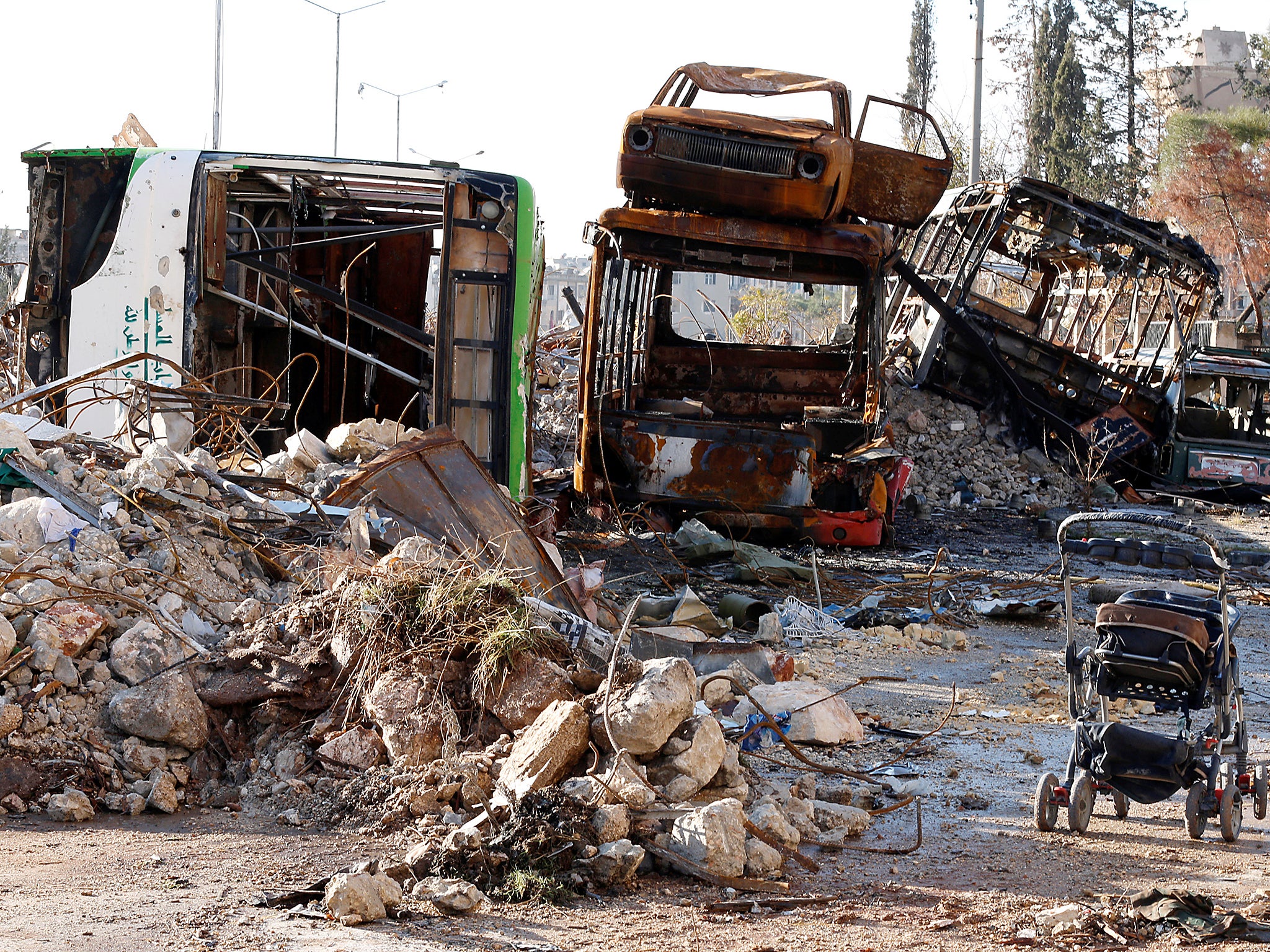Aleppo: Theresa May and Barack Obama condemn Syria and Russia and call for immediate ceasefire
Joint statement from six Western powers asks Russia and Iran to use their influence on Syrian government to secure cessation in hostilities, as rebels also make rare plea for truce

Your support helps us to tell the story
From reproductive rights to climate change to Big Tech, The Independent is on the ground when the story is developing. Whether it's investigating the financials of Elon Musk's pro-Trump PAC or producing our latest documentary, 'The A Word', which shines a light on the American women fighting for reproductive rights, we know how important it is to parse out the facts from the messaging.
At such a critical moment in US history, we need reporters on the ground. Your donation allows us to keep sending journalists to speak to both sides of the story.
The Independent is trusted by Americans across the entire political spectrum. And unlike many other quality news outlets, we choose not to lock Americans out of our reporting and analysis with paywalls. We believe quality journalism should be available to everyone, paid for by those who can afford it.
Your support makes all the difference.In an unprecedented joint statement, the UK, US, France, Germany, Italy and Canada have asked the Syrian regime’s allies in Moscow and Tehran to urge President Bashar al-Assad to consider a ceasefire in Aleppo in order to stem the city's “humanitarian disaster”.
“The regime’s refusal to engage in a serious political process also highlights the unwillingness of Russia and Iran ... Despite their assurances to the contrary,” the statement read.
“The urgent need now is for an immediate ceasefire to allow the United Nations to get humanitarian assistance to people in eastern Aleppo. Only a political settlement can bring peace for people in Syria.”
In a rare admission of weakness on Wednesday, rebel factions within the city also asked the UN to help implement a five-day-long truce in the fierce fighting in order to evacuate 500 seriously wounded and other civilians from besieged neighbourhoods.
The calls come as Syrian government forces and allied militias managed to retake almost three quarters of rebel-controlled territory late Tuesday night, and after a medical evacuation and aid plan proposed by the UN was vetoed by permanent Security Council members Russia and China on Monday.
A siege since August and sustained ground and aerial offensive on east Aleppo since September – which has intensified in the last two weeks – has left hundreds of people dead, decimated the area’s medical facilities, and left 250,000 civilians on the brink of starvation as winter sets in.
A World Food Programme spokesperson described the situation as Aleppo’s “slow descent into hell”.
In one conversation the The Independent had with an activist inside the rebel-controlled side of the city, it was suggested that the long-suffering people would “welcome death” rather than suffer any longer or put themselves in the hands of the regime’s feared secret police.
Captain Abdel-Salam Abdel-Razek of the Nour el-Din el-Zinki rebel group said in a statement that the future of the city could be negotiated during the proposed humanitarian pause, which the coalition of rebel factions wants the UN to monitor.
The rebel proposal made no mention of a surrender, as has been negotiated in other cities during Syria’s bloody five-and-a-half-year-long civil war.
While the Kremlin said on Wednesday an exit deal for rebels “remains on the agenda,” the Syrian government said earlier this week that it does not plan on accepting any truce and will instead focus on a military victory. Mr Assad has accused rebels of using previous ceasefires as an opportunity to regroup.
Mr Assad’s troops, greatly assisted by Russia’s military might, are currently poised to retake control of the entire city for the first time since 2012, in what would be the most significant victory for the regime since the fall of Homs in 2014.
Damascus and Moscow maintain that civilians and fighters have always been free to leave besieged areas and travel to neighbouring rebel-held Idlib province through humanitarian corridors, although both sides have accused the other of shelling and shooting those who tried to cross the government checkpoints.
The UK-based Syrian Observatory for Human Rights said on Wednesday that since the assault to retake the city stepped up two weeks ago, an exodus of more than 80,000 people has fled to government and Kurdish controlled areas as the frontline has rapidly advanced.
Subscribe to Independent Premium to bookmark this article
Want to bookmark your favourite articles and stories to read or reference later? Start your Independent Premium subscription today.
Join our commenting forum
Join thought-provoking conversations, follow other Independent readers and see their replies
Comments